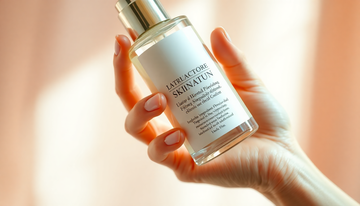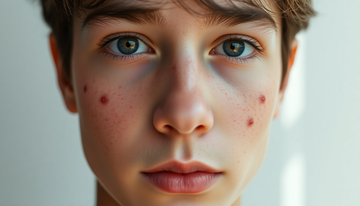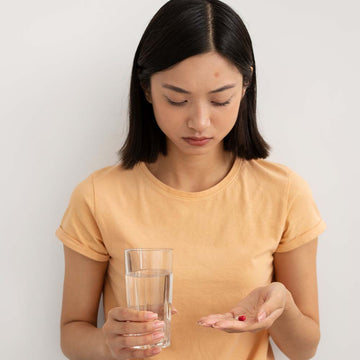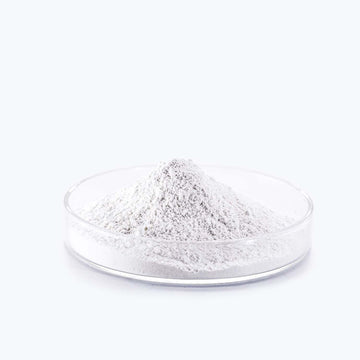Introduction to Acne-Prone Skin Welcome to the comprehensive guide on acne-prone skin. This condition affects many individuals, but with the right knowledge, you can manage it effectively. Understanding the nature of acne-prone skin is the first step towards clear, healthy skin.
Identifying Acne-Prone Skin
Signs and Symptoms
Acne-prone skin is typically characterized by frequent breakouts, including whiteheads, blackheads, and pimples. This skin type is often oily but can also be dry or a combination of both.
Skin Type Assessment
It's essential to assess your skin type to manage acne-prone skin effectively. This can be done through a simple examination of your skin's behavior and reactions to various products or environmental factors.
Causes of Acne-Prone Skin
Hormonal Factors
Hormonal changes, especially during puberty, menstruation, or pregnancy, can significantly affect your skin and cause acne.
Genetic Influence
Your genetic makeup plays a crucial role in determining your skin type. If acne is common in your family, you might be more prone to it.
Environmental Factors
External factors like pollution, humidity, and exposure to certain chemicals can aggravate acne-prone skin.
Lifestyle and Diet
Your lifestyle choices and diet can impact your skin. High sugar intake, fatty foods, and stress can trigger acne.
Managing Acne-Prone Skin
Skincare Routine Essentials
Cleansing
Choose a gentle cleanser that doesn't strip your skin of its natural oils. Cleansing helps in removing excess oil and impurities, preventing acne.
Moisturizing
Hydrating your skin is crucial, even if it's oily. Look for non-comedogenic moisturizers that provide hydration without clogging pores.
Sun Protection
Always use a broad-spectrum sunscreen to protect your skin from harmful UV rays, which can exacerbate acne.
Acne Treatment Products
Topical Treatments
Products containing salicylic acid, benzoyl peroxide, and retinoids can be effective. For instance, Acne-X Topical products are formulated to target acne-prone skin effectively.
Oral Medications
In severe cases, dermatologists may prescribe oral medications like antibiotics or isotretinoin.
Home Remedies and Natural Solutions
DIY Face Masks
Home-made face masks using natural ingredients like honey, oatmeal, or aloe vera can help soothe and treat acne-prone skin.
Herbal Supplements
Herbal supplements like green tea extract or fish oil can support skin health, but always consult a healthcare provider before starting any new supplement.
Preventive Measures
Dietary Adjustments
Incorporating a diet rich in fruits, vegetables, and whole grains while reducing sugar and dairy intake can help manage acne.
Stress Management
Practicing stress-relief techniques like yoga, meditation, or regular exercise can reduce stress-induced acne.
Impact on Mental Health
Self-Esteem and Confidence
Acne can affect self-esteem and confidence. It's essential to address these psychological effects by seeking support and focusing on self-care.
Seeking Support
Don't hesitate to seek support from friends, family, or professionals for mental health concerns related to acne.
Expert Opinions and Dermatologist Advice
When to See a Dermatologist
If your acne is persistent or severe, it's time to consult a dermatologist. They can provide tailored treatment plans and professional advice.
Professional Treatments
Professional treatments like chemical peels, laser therapy, or prescription medications can be more effective for severe acne.
Conclusion Remember, managing acne-prone skin is a journey. With the right care, lifestyle changes, and treatment, you can achieve healthier skin. Stay informed and hopeful, and embrace your unique skin.
For more information on managing acne-prone skin, check out the American Academy of Dermatology Association's guide on skincare for acne-prone skin.
-
How do I know if I have acne-prone skin? You might have acne-prone skin if you frequently experience breakouts, including pimples, blackheads, or whiteheads. This skin type typically appears oily, but it can also be dry or a combination. Signs include persistent acne, sensitivity to certain skincare products, and visible pores.
-
What are the best dietary practices for managing acne-prone skin? A balanced diet plays a crucial role in managing acne-prone skin. Focus on foods rich in antioxidants, such as fruits and vegetables. Limit intake of dairy products and high-glycemic foods like sugar and refined carbs. Staying hydrated and reducing caffeine and alcohol consumption can also benefit your skin.
-
Are natural remedies effective for treating acne-prone skin? Natural remedies can be effective, especially for mild acne. Ingredients like tea tree oil, aloe vera, and green tea have anti-inflammatory and antibacterial properties. However, for more severe or persistent acne, these remedies might not be sufficient, and you might need to explore other treatment options.
-
When should I consider seeing a dermatologist for my acne? Consider seeing a dermatologist if your acne is severe, persistent, or if over-the-counter treatments aren't effective. If your acne is causing scarring, pain, or significant distress, a dermatologist can provide more specialized treatments and tailor a skincare plan to your needs.
-
Can stress management techniques help in reducing acne flare-ups? Yes, stress management can play a significant role in reducing acne flare-ups. Stress can trigger hormonal changes that exacerbate acne. Techniques like yoga, meditation, regular exercise, and ensuring adequate sleep can help manage stress levels and potentially reduce acne incidents.





